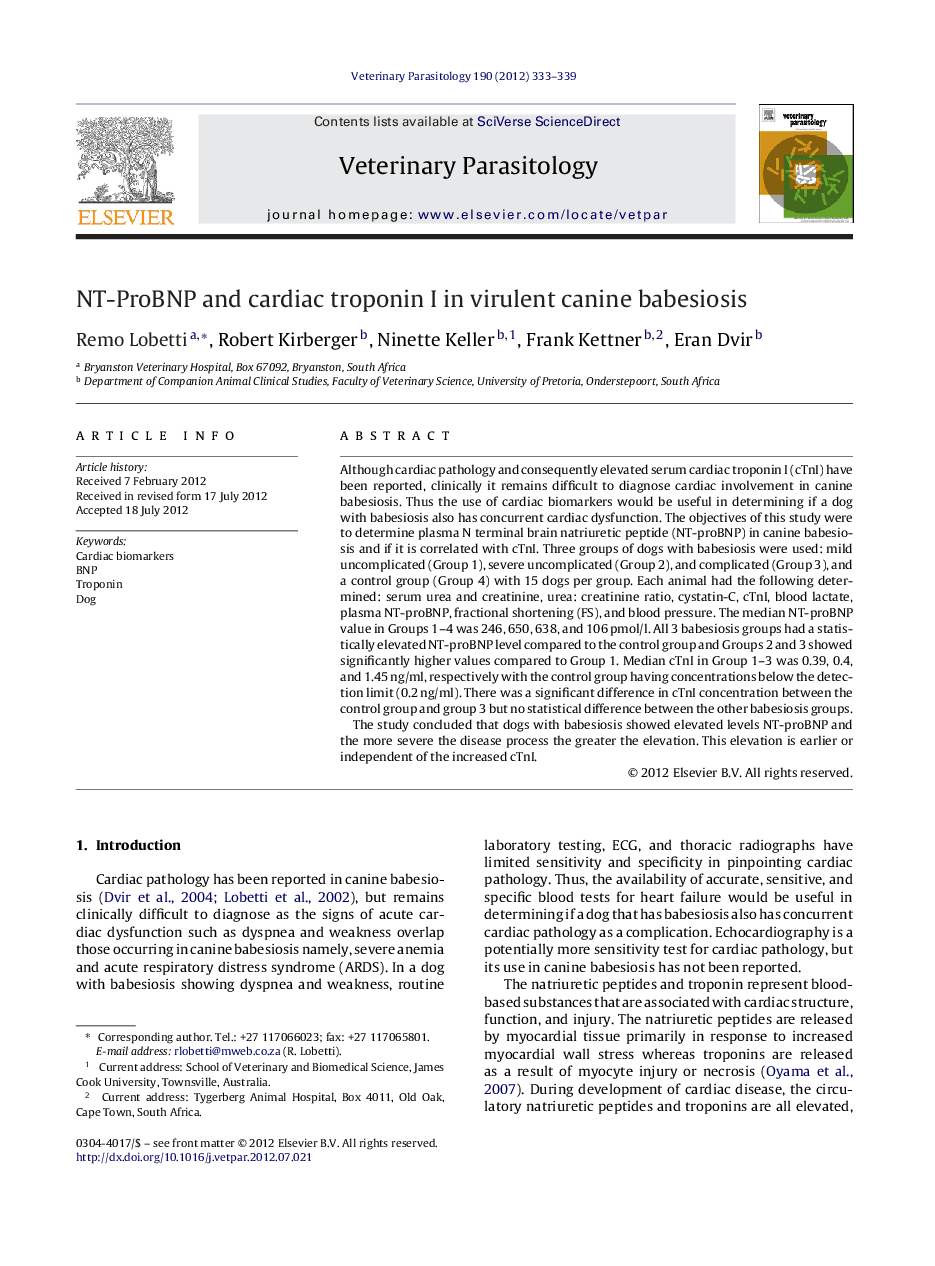| Article ID | Journal | Published Year | Pages | File Type |
|---|---|---|---|---|
| 5804572 | Veterinary Parasitology | 2012 | 7 Pages |
Although cardiac pathology and consequently elevated serum cardiac troponin I (cTnI) have been reported, clinically it remains difficult to diagnose cardiac involvement in canine babesiosis. Thus the use of cardiac biomarkers would be useful in determining if a dog with babesiosis also has concurrent cardiac dysfunction. The objectives of this study were to determine plasma N terminal brain natriuretic peptide (NT-proBNP) in canine babesiosis and if it is correlated with cTnI. Three groups of dogs with babesiosis were used: mild uncomplicated (Group 1), severe uncomplicated (Group 2), and complicated (Group 3), and a control group (Group 4) with 15 dogs per group. Each animal had the following determined: serum urea and creatinine, urea: creatinine ratio, cystatin-C, cTnI, blood lactate, plasma NT-proBNP, fractional shortening (FS), and blood pressure. The median NT-proBNP value in Groups 1-4 was 246, 650, 638, and 106Â pmol/l. All 3 babesiosis groups had a statistically elevated NT-proBNP level compared to the control group and Groups 2 and 3 showed significantly higher values compared to Group 1. Median cTnI in Group 1-3 was 0.39, 0.4, and 1.45Â ng/ml, respectively with the control group having concentrations below the detection limit (0.2Â ng/ml). There was a significant difference in cTnI concentration between the control group and group 3 but no statistical difference between the other babesiosis groups.The study concluded that dogs with babesiosis showed elevated levels NT-proBNP and the more severe the disease process the greater the elevation. This elevation is earlier or independent of the increased cTnI.
